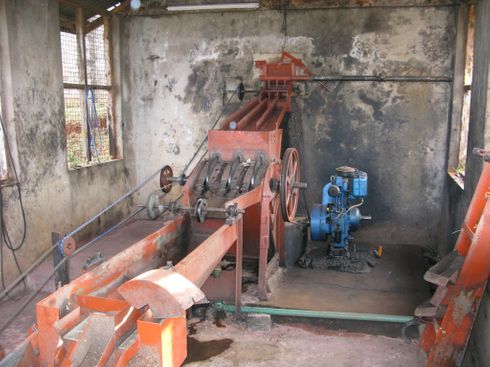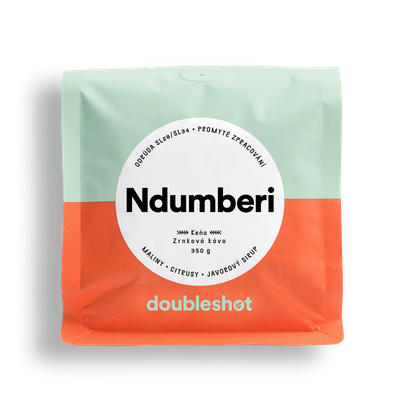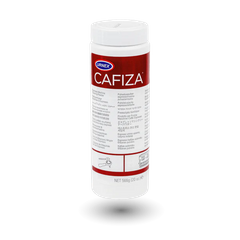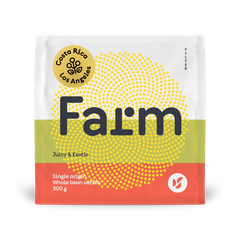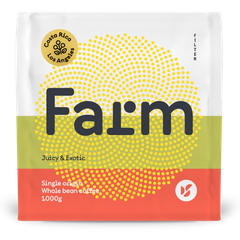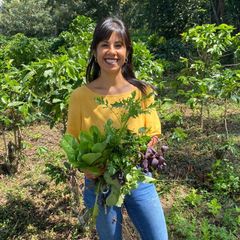
| Country | Kenya |
|---|---|
| Farm | Ndumberi, Kiambu |
| Varietal | Arabica SL28 / SL34 |
| Processing | Fully Washed |
| Crop | January 2021 |
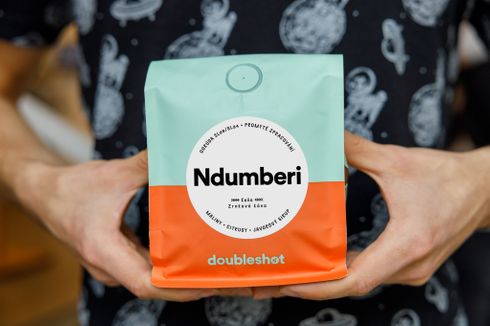
Ndumberi Farmers Cooperative Society
The Ndumber station lies at the base of Aberdare mountains not far from the city of Nairobi. The cooperative was already founded in 1961 and today you can find more then 3.000 producers here. It belongs to 4C, UTZ, Fairtrade and Rainforest Aliance. Ripe cherries are traditionally washed and unlike in other producing countries they are fermented up to 72 hours.
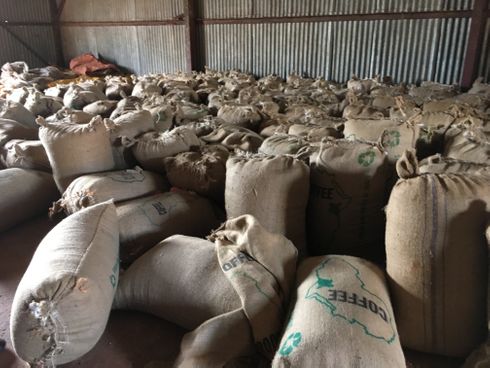
Peaberry
The name peaberry (PB) in the coffee description implies it is a special bean resembling of a pea - small and round. What happens is that in the cherry grows only one seed instead of two seeds. Different countries have different names for it. The Czechs call it pearl berry, the Spanish call it snail berry and the English call it pea berry. It makes up to 5% of a producer´s harvest and it gets separated from the rest of the lot. It is believed it has better flavour and therefore it is sold for higher price.
The peaberries are not of better quality then other beans though. Thanks to its shape it is easier for the energy to get through the beans more evenly while roasting and that is why the beans develop better and therefore taste sweeter.
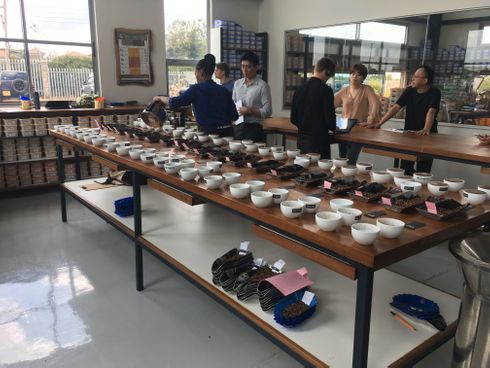
Varieties
It is common in Kenya that stations buy coffee from producers who bring blends of old varieties like SL28/SL 34 and new and more resistant varieties such as Batian and Ruira 11. The new varieties have greater yield and that is why they have become so much more popular recently. You can find different ratios of these varities on farms.
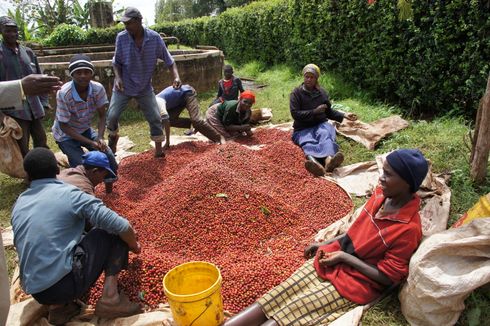
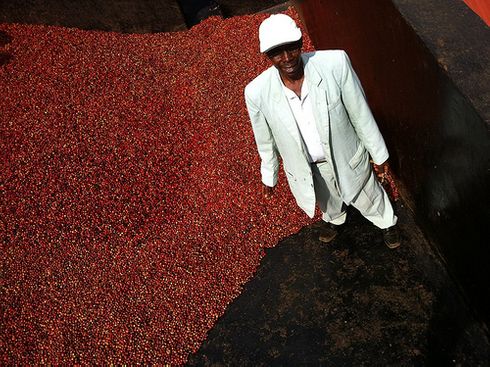
Processing
The main crop runs from October to January. The second crop takes place in March and April. Cherries are mostly washed. Freshly picked cherries are dropped into a machine called ´depulper´ where the skin is removed (see the picture below). After that they are fermented in tanks (usually over night, 12-72 hours) and washed in cold water before they spread them on African beds to dry in the sun. The drying takes usually 7-15 days.
